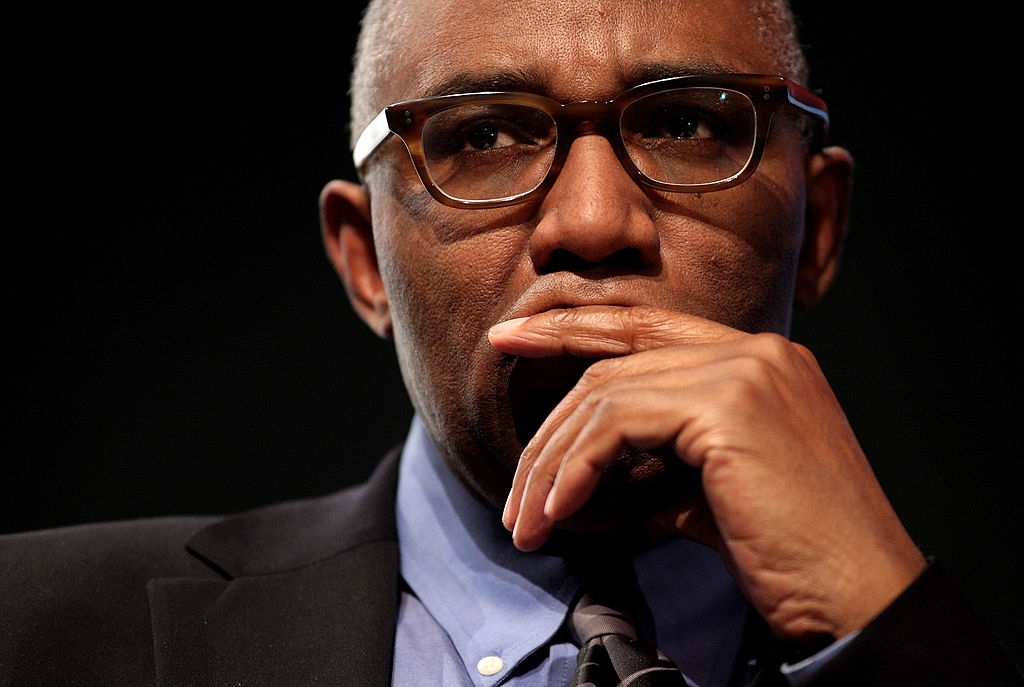Trevor Phillips’ suspension from the Labour party over allegations of ‘Islamophobia’ has been roundly condemned, but it should come as little surprise. After all, Phillips has been a high-profile opponent of the very definition that is now being weaponised against him. What has happened to him should serve as a warning to others who call out the problems with ‘Islamophobia’. If someone as well known as Phillips can be targeted for speaking out, no one is safe.
Within hours of Phillips being suspended by the party whose cause he has promoted for 30 years, his colleagues, both past and present, leapt to his defence. Jodie Ginsberg, former CEO of Index on Censorship said: ‘He [Phillips] campaigns tirelessly to make the world a better place for all. Labour’s actions won’t deal with hatred towards Muslims – they’ll just deter people from speaking out on injustice.’ Labour MP Ben Bradshaw said: ‘This swift action against Trevor Phillips is in stark contrast to the complete lack of action against anti-semites I and many other Labour MPs have reported repeatedly to Jennie Formby and who remain Labour members.’
But this support might not be enough. The offence archaeologists have been busy. Their desire to oust Phillips, a longstanding member of the Labour party, is ironic given he’s someone who has been instrumental in pushing for legislation that protects all races and religions from discrimination (Racial and Religious Hatred Act 2006). The ‘charge sheet’ against him is seemingly based on words published and possibly spoken over a period of several years. These were read by millions of people in newspapers. Some emanated from television programmes. Remarkably, it is likely that part of the attempt to hound Phillips is based on quotes about objective research conducted by others. The precise charges, however, have not been disclosed. And yet Phillips’ decision to put his name to a letter ahead of the snap election criticising the party over anti-Semitism is unlikely to have helped his cause. He has described his suspension as ‘Corbynista payback’, and accused Labour bosses of ‘pure political gangsterism’.
But one thing is also clear enough: the witch hunt against Phillips confirms that those speaking out against the controversial definition of Islamophobia put forward by the All-Party Parliamentary Group (APPG) on British Muslims were right.
Whatever your view on Phillips, the action against him demonstrates the insidious nature of how the definition of Islamophobia can be wielded to persecute political opponents, while stifling (or completely shutting down) difficult and uncomfortable topics like ‘grooming gangs’. One of the charges against Phillips appears to be related to him referring to the Pakistani Muslim heritage of those involved in child abuse scandals in northern British towns. We already know how the failure by authorities to speak plainly about this subject exposed vulnerable victims to abuse in other places. And on this issue, Labour has form. Just consider the appalling treatment of Rotherham MP Sarah Champion, who was relentlessly hounded for daring to speak out.
In the introduction to The Trial: the strange case of Trevor Phillips, a report published by Policy Exchange, Phillips writes: ‘It was only a matter of time before this ‘definition’ would inevitably lead to the persecution of individuals who dissented. I never imagined that I myself would be the first, political victim of such a witch-hunt’.
Phillips has my sympathy. But unlike others who might well find themselves in a similar situation in the future, Phillips at least has the means to speak out. He is more than capable of mounting a robust defence of his comments, as he has already done so eloquently on Radio 4. He has friends in high places who will defend him. But the question remains: if a public figure like Phillips is fair game, what about the rest of us? What hope do we have in pushing back against those who want to smear us and accuse us of ‘racism’ or ‘Islamophobia’, simply for having thoughts on matters of significant public interest?
The inquisition into Phillips’ heresy is aptly summed up in the foreword to The Trial: the strange case of Trevor Phillips by Khalid Mahmood MP for Perry Barr, and member of the APPG on British Muslims. Mahmood the longest serving Muslim member of parliament writes:
‘It was with no small measure of astonishment that I learnt that my own party, the Labour party, had initiated proceedings against Trevor Phillips on grounds of ‘racism’ and ‘Islamophobia’. The charges are so outlandish as to bring disrepute on all involved in making them; and I fear they further add to the sense that we, as a party, have badly lost our way.’
Mahmood is right: we should all be afraid by what has happened to Trevor Phillips.






Comments